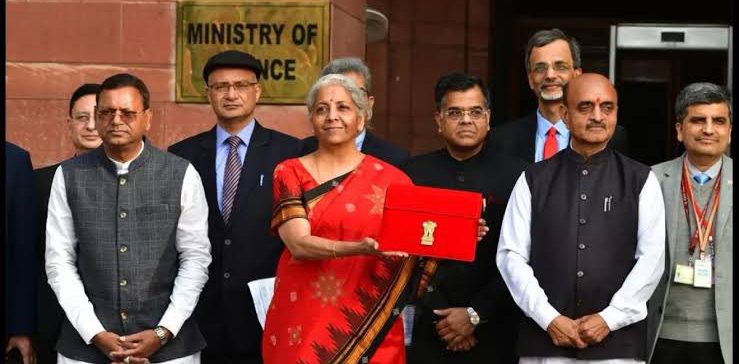From the times when the word “cooperative” hardly found any mention in the union budget to a time when cooperative is seen as a tool of prosperity, the Union Budget has indeed come a long way! It was apparent in the speech of Union Finance Minister Nirmala Sitharaman that the present dispensation sets great stores by cooperatives and sees them as a means of growth of rural and urban economies.
Besides other things, the co-op database and employing co-operatives in creating an all-India network of godowns found special mention in the budgetary speech. Multi-purpose PACS working on new charter in the field of agriculture, dairies and fisheries in each panchayat were other highlights of the Speech.
We are reproducing the highlights related to the two sectors- cooperative and agriculture which are inseparably linked.
New cooperatives that commence manufacturing activities till 31st March next year shall get the benefit of a lower tax rate of 15%.
The Budget provides an opportunity to sugar cooperatives to claim payments made to sugarcane farmers for the period prior to assessment year 2016-17 as expenditure.
A higher limit of Rs 2 lakh per member has been provided for cash deposits to and loans in cash by Primary Agricultural Cooperative Societies and Primary Cooperative Agriculture and Rural Development Banks.
The Budget proposes a higher limit of Rs 3 crore for TDS on cash withdrawal for cooperative societies.
The government will implement a plan to set up massive decentralized storage capacity, which will help farmers store their produce and realize remunerative prices through sale at appropriate times.
The government will also facilitate setting up of a large number of multipurpose cooperative societies, primary fishery societies and dairy cooperative societies in uncovered panchayats and villages in the next 5 years.
Digital Public infrastructure for agriculture will be built as an open source, open standard and interoperable public good. This will enable inclusive, farmer-centric solutions through relevant information services for crop planning and health, improved access to farm inputs, credit, and insurance, help for crop estimation, market intelligence, and support for growth of agri-tech industry and start-ups.
The Agriculture Accelerator Fund will be set-up to encourage agri-startups by young entrepreneurs in rural areas, which will aim at bringing innovative and affordable solutions for challenges faced by farmers. It will also bring in modern technologies to transform agricultural practices, increase productivity and profitability.
Dwelling on welfare measures for farmers, the agriculture credit target will be increased to Rs 20 lakh crore with focus on animal husbandry, dairy and fisheries.
The Government will launch a new sub-scheme of PM Matsya Sampada Yojana with targeted investment of Rs 6,000 crore to further enable activities of fishermen, fish vendors, and micro & small enterprises, improve value chain efficiencies, and expand the market.
The number of basic customs duty rates on goods, other than textiles and agriculture, have been reduced from 21 to 13.
